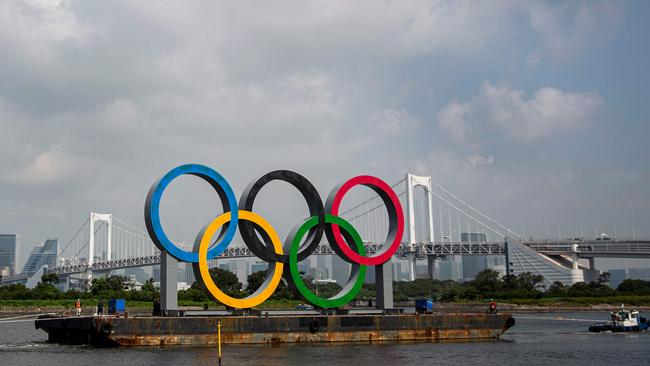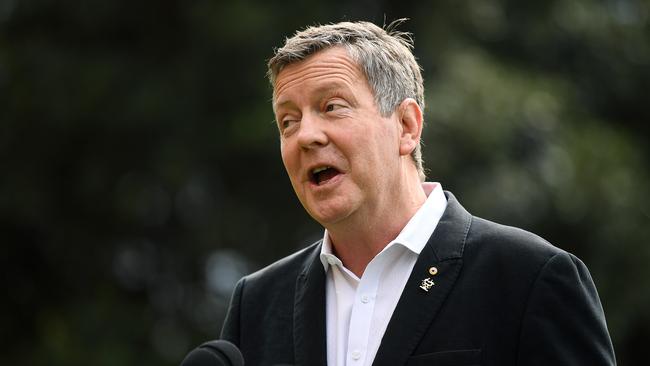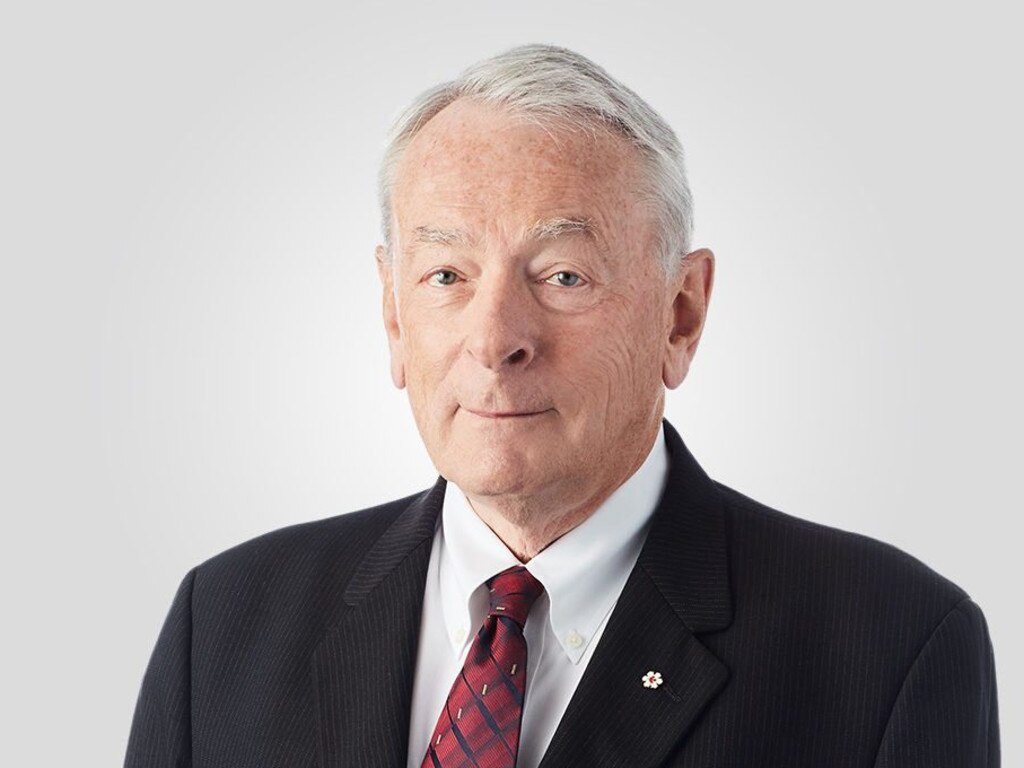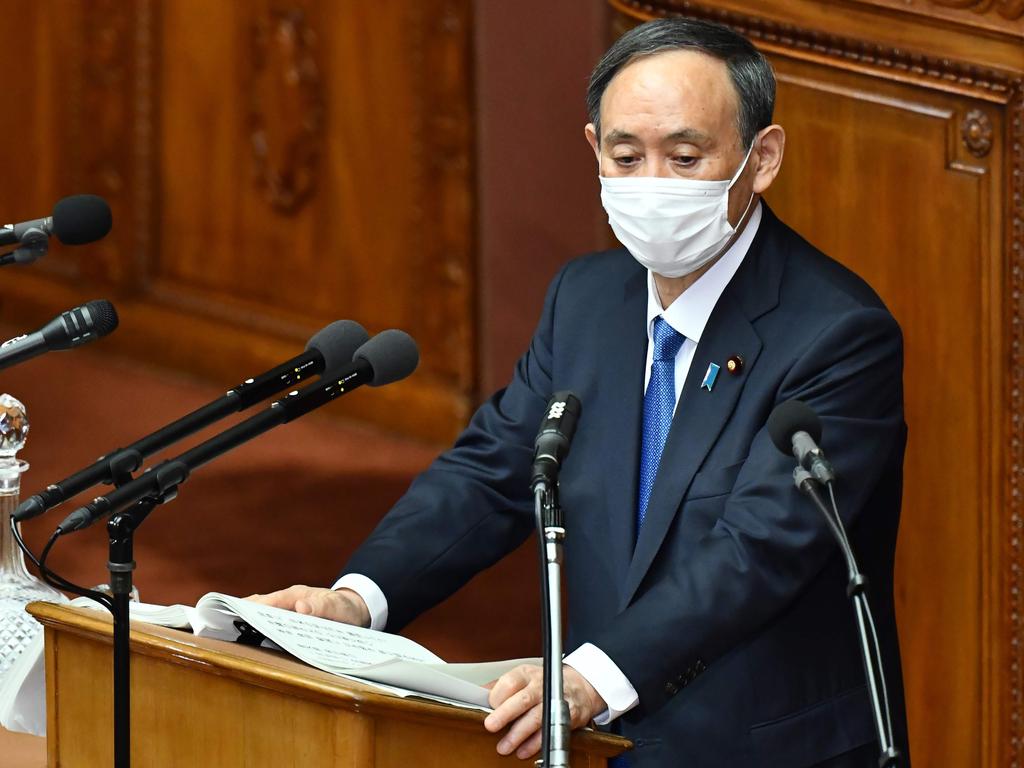Tokyo Olympics are not cancelled, AOC says, despite claims they’ll be delayed til 2032
They may look very different, but the Tokyo Olympics are on, says AOC chief, shooting down reports they’ve been cancelled.

The Australian Olympics Committee (AOC) says the Japanese Prime Minister has told parliament the Tokyo Olympics are on.
But it won’t be the Olympics as we know them: pomp and ceremony will fall victim to strict quarantine measures, crowd restrictions, and some ceremonies sacrificed.
“This will be a “very much an athletes and competition-centred games,” AOC chief executive Matt Carroll told a press conference.
He labelled reports Tokyo had been cancelled “an unfounded rumour”.
He said the Japanese prime minister Yoshihide Suga has today ‘stood up in parliament’ and reaffirmed the games will go ahead.
“When the Japanese Prime minister makes a statement, he makes a statement,” Mr Carroll said.
“He has just stood up in parliament in Tokyo and said the Games are on.”
Mr Carroll said it “won’t be the Games we saw in Rio and London”.
AOC statement on Tokyo Olympic Games rumour:
— AUS Olympic Team (@AUSOlympicTeam) January 22, 2021
"Both Japanese Prime Minister Suga and IOC President Bach have this week strongly reaffirmed their commitment to the Tokyo Olympic Games going ahead in July this year."
👉 https://t.co/JS4L22nM2Q pic.twitter.com/JIXVA00dBm
“Tokyo 2020 will be a very different games. Simpler, but with a focus on the athletes and their competitions. Sadly, ceremonies and cultural aspects of the Games will be reduced. Decisions on spectators, local and international, are still to be made,” Mr Carroll said.
“This will be an athlete and competition centred Games. A perfect example is this afternoon, our chef de mission has already written to all the athletes to ease their anxiety and gone out to all our member sports to make sure they understand it’s an unfounded rumour.”
Australia continues with its plans to take a team of about 1000 to the Games, he said.
His words came after both Mr Suga and IOC President Bach have strongly reaffirmed their commitment to the Tokyo Olympic Games going ahead in July this year, amid reports the Japanese government had privately concluded they would have to cancelled and the focus was now on securing the Games for the city in 2032, the next available year.

A senior member of the ruling coalition had told The Times there was agreement that the Games were doomed. The aim is to find a face-saving way of announcing the cancellation that leaves open the possibility of Tokyo playing host at a later date. “No one wants to be the first to say so but the consensus is that it’s too difficult,” the source said. “Personally I don’t think it’s going to happen.”
The Games have already been postponed by one year.
“We will have full anti-infection measures in place and proceed with preparation with a determination to achieve the Games that can deliver hope and courage throughout the world,” Mr Suga told parliament on Monday.
However, according to the source, the winter wave of the coronavirus, which has led a state of emergency in Japan’s biggest cities, had tipped the balance.
Opinion polls show that 80 per cent of Japanese are against the Games going ahead in July and August.
Pandemic toll
The Australian Open, due to begin on February 8, is beset by problems.
More than 1200 have flown to Melbourne for the tennis tournament but cases have been detected and some players have been confined to hotels.
The cancellation of the Olympics would be a financial disaster for Japan, which has spent at least $25 billion on preparations, three quarters of it public money.
The aim is to maintain the facade of battling determinedly to go ahead in the hope that when they are inevitably cancelled, the 2032 Games will be given to Tokyo out of sympathy.
Paris is due to host the Games in 2024 and Los Angeles has already been chosen as the venue for 2028. A decision on which city will stage the Olympics in 2032 is expected to be taken by 2025.
“Suga is not emotionally invested in the Games,” the senior source said. “But they want to show that they are ready to go, so that they will get another chance.”
The Olympics were called off in 1916, 1940 and 1944 but this would be the first cancellation in peacetime.
Last year the decision to postpone was made after Canada and Australia announced that they would not send athletes if they went ahead. “If someone like President Biden was to say that US athletes cannot go, then we could say, ‘Well, now it is impossible’,” the senior source added.
The latest idea being pushed by the IOC is a televised Games with athletes but no spectators. This would suit the IOC, which makes most of its income from broadcast rights, but not the Japanese authorities, which would make money from ticket sales. Such an option has been ruled out by Yoshiro Mori, a former prime minister who runs the Tokyo organising committee. A problem for Mr Suga is that Mr Mori, 83, a powerbroker in his Liberal Democratic Party, has lung cancer. To some in the party, cancellation would rob an ailing man of his final dream.
with The Times






To join the conversation, please log in. Don't have an account? Register
Join the conversation, you are commenting as Logout